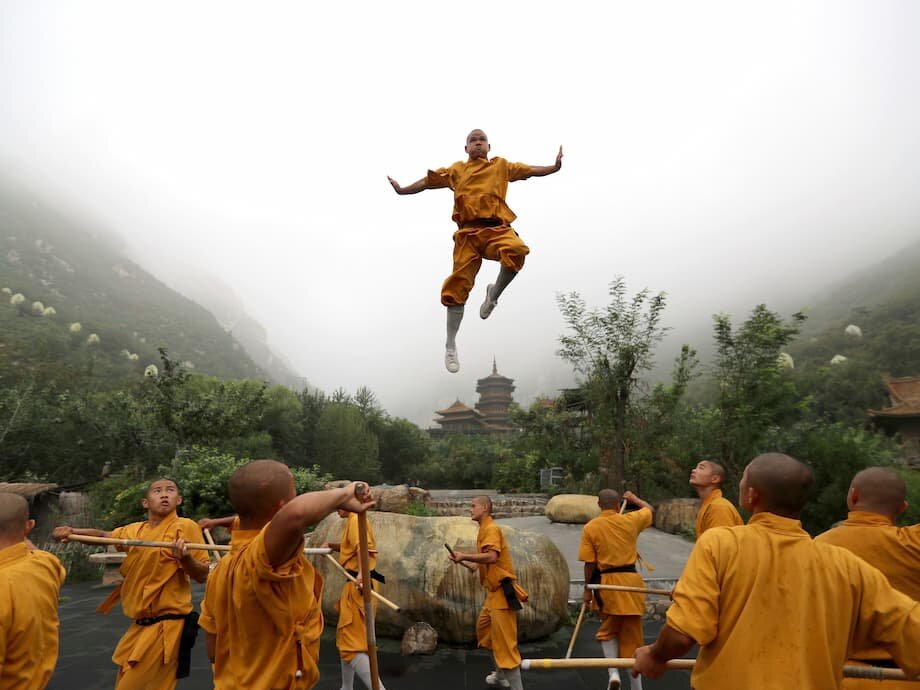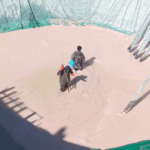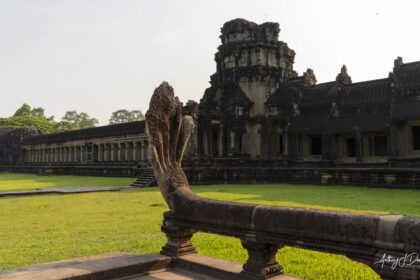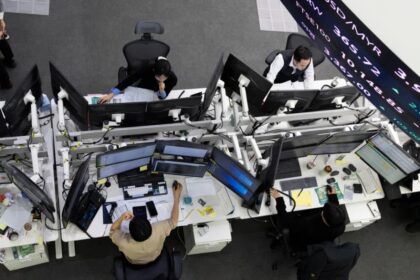Shaolin Temple Abbot Shi Yongxin Under Investigation: A Crisis at the Heart of Chinese Buddhism
The world-renowned Shaolin Temple, famed as the cradle of Zen Buddhism and Shaolin kung fu, is facing its most significant scandal in decades. On Sunday, temple authorities announced that their abbot, Shi Yongxin—dubbed the “CEO monk” for his entrepreneurial transformation of the monastery—has been placed under joint investigation by multiple Chinese government agencies. The allegations are grave: embezzlement of temple funds, misappropriation of assets, and serious violations of Buddhist precepts, including maintaining improper relationships with multiple women and fathering illegitimate children.
- Shaolin Temple Abbot Shi Yongxin Under Investigation: A Crisis at the Heart of Chinese Buddhism
- What Are the Allegations Against Shi Yongxin?
- Who Is Shi Yongxin? The Rise of the “CEO Monk”
- Shaolin Temple: More Than a Monastery
- Public Reaction: Outrage, Skepticism, and Social Media Frenzy
- What Happens Next? The Investigation and Its Implications
- In Summary
This investigation has sent shockwaves through China and the global Buddhist community, raising questions about the commercialization of religious institutions, the accountability of spiritual leaders, and the future of one of the world’s most iconic temples.
What Are the Allegations Against Shi Yongxin?
According to official statements released on the Shaolin Temple’s WeChat account and corroborated by multiple international news outlets, Shi Yongxin is suspected of:
- Embezzling project funds and temple assets
- Maintaining improper relationships with several women over a long period
- Fathering at least one illegitimate child
- Violating Buddhist vows of celibacy and monastic discipline
The Buddhist Association of China, the country’s top religious authority, has stripped Shi of his ordination certificate—a rare and severe disciplinary action. In a statement, the association declared:
Shi Yongxin’s actions are extremely bad, seriously damaging the reputation of the Buddhist community and the image of monks.
Shi Yongxin has not responded publicly to the allegations. Attempts by journalists to contact him have so far been unsuccessful.
Who Is Shi Yongxin? The Rise of the “CEO Monk”
Shi Yongxin, born Liu Yingcheng in 1965, entered the Shaolin Temple as a novice monk in 1981. He rose quickly through the ranks, becoming the 30th abbot in 1999. Unlike many of his predecessors, Shi holds an MBA and has served as a member of China’s National People’s Congress, the country’s top legislative body.
Under Shi’s leadership, the Shaolin Temple underwent a dramatic transformation. He spearheaded efforts to commercialize the temple’s brand, launching kung fu schools, merchandise lines, and international performance troupes. The temple’s business ventures expanded to include publishing, film production, medicine, asset management, and real estate. At its peak, the Shaolin brand operated dozens of companies and cultural centers worldwide.
This aggressive commercialization earned Shi the nickname “CEO monk.” While some praised his vision for revitalizing the temple and spreading Chinese culture, others criticized him for blurring the line between spiritual stewardship and profit-driven enterprise.
Previous Controversies and Public Scrutiny
This is not the first time Shi Yongxin has faced allegations of misconduct. In 2015, he was accused of embezzlement, sexual impropriety, and accepting lavish gifts—including a luxury car and a gold-threaded robe—from business interests and local officials. The temple denied the allegations, and a provincial investigation exonerated Shi in 2016 due to insufficient evidence. Nevertheless, skepticism lingered among critics and the public.
Shi’s commercial ventures also drew controversy. In 2006, he was criticized for accepting a luxury car from the local government. In 2015, plans to build a nearly $300 million temple complex in Australia—including a hotel, kung fu academy, and golf course—were met with backlash for further commercializing sacred traditions.
Shaolin Temple: More Than a Monastery
Founded over 1,500 years ago in Henan province, the Shaolin Temple is one of China’s most revered religious sites. It is recognized as the birthplace of Zen (Chan) Buddhism and Shaolin kung fu—a martial arts tradition that has influenced global pop culture, from the 1982 film “The Shaolin Temple” starring Jet Li to references in hip-hop music and video games.
Beyond its spiritual significance, the temple is a major tourist attraction, drawing thousands of visitors and disciples from around the world each year. Its economic impact on the local region is substantial, and its cultural influence extends far beyond China’s borders.
The Commercialization Debate
Shi Yongxin’s tenure as abbot marked an era of unprecedented commercialization. The temple’s online store sold everything from kung fu manuals to branded tea and T-shirts. Shaolin monks performed martial arts shows internationally, and the temple’s name was licensed for various commercial ventures.
Supporters argue that these activities have helped preserve and promote Shaolin culture in a rapidly modernizing world. Critics, however, contend that the pursuit of profit has undermined the temple’s spiritual mission and eroded public trust in religious institutions.
While Shaolin Temple has long enjoyed a place in global pop culture, the current scandal risks tarnishing that image. As the investigation continues, many within China’s Buddhist and martial arts communities are calling for stricter oversight of religious figures. (Arise News)
Public Reaction: Outrage, Skepticism, and Social Media Frenzy
The news of Shi Yongxin’s investigation has dominated Chinese social media. On Weibo, China’s leading platform, hashtags related to the scandal have been viewed over 560 million times. The abbot’s personal account, which previously posted daily Buddhist reflections to more than 880,000 followers, has been inactive since July 24.
Public opinion is divided. Some express outrage at the alleged betrayal of Buddhist values, while others are skeptical of the timing and motivations behind the investigation. Rumors and fake news have proliferated, including a viral (and later debunked) notice claiming Shi was intercepted by authorities while attempting to flee to the United States with mistresses and children.
Chinese authorities have moved quickly to dispel misinformation. The public security bureau of Kaifeng, Henan, issued a statement declaring the viral notice fake and urged the public to refrain from spreading unverified claims.
Impact on the Buddhist Community
The scandal has sparked soul-searching within China’s Buddhist and martial arts communities. Many are calling for greater transparency and accountability among religious leaders. The Buddhist Association of China’s decision to revoke Shi’s ordination certificate is seen as a strong signal that misconduct will not be tolerated, regardless of a leader’s prominence or achievements.
Shi Yongxin’s actions have seriously damaged the reputation of the Buddhist community and the image of monks. (Buddhist Association of China)
What Happens Next? The Investigation and Its Implications
Shi Yongxin is currently under joint investigation by multiple government departments. Authorities have promised to release further details as the probe progresses. It remains unclear whether Shi will face criminal charges or if the investigation will result in his permanent removal from office.
China’s government maintains strict oversight of religious institutions and the appointment of religious leaders. Improper conduct is often grounds for removal, and the state has shown increasing willingness to crack down on corruption within religious organizations.
The outcome of this investigation could set a precedent for how China handles allegations of corruption and misconduct in religious institutions. It may also influence the future direction of the Shaolin Temple, both as a spiritual center and as a global cultural brand.
The Broader Significance: Religion, Commerce, and Modern China
The Shaolin Temple scandal highlights the complex relationship between religion, commerce, and state power in contemporary China. As religious sites become increasingly commercialized, questions arise about the balance between tradition and modernization, spiritual integrity and financial sustainability.
Shi Yongxin’s case is a cautionary tale about the risks of unchecked authority and the challenges of maintaining ethical standards in the face of rapid economic and social change. It also underscores the importance of transparency and accountability in preserving the credibility of religious institutions.
In Summary
- Shi Yongxin, abbot of the Shaolin Temple, is under investigation for embezzlement, misappropriation of assets, and violating Buddhist precepts.
- The Buddhist Association of China has stripped Shi of his ordination certificate, citing severe damage to the reputation of the Buddhist community.
- Shi, known as the “CEO monk,” transformed the temple into a global commercial brand, sparking debate over the commercialization of religion.
- This is not Shi’s first brush with controversy; previous allegations of misconduct were dismissed in 2016 due to lack of evidence.
- The scandal has ignited public outrage and debate in China, with social media playing a major role in shaping public opinion.
- The outcome of the investigation could have far-reaching implications for religious governance and the future of the Shaolin Temple.












